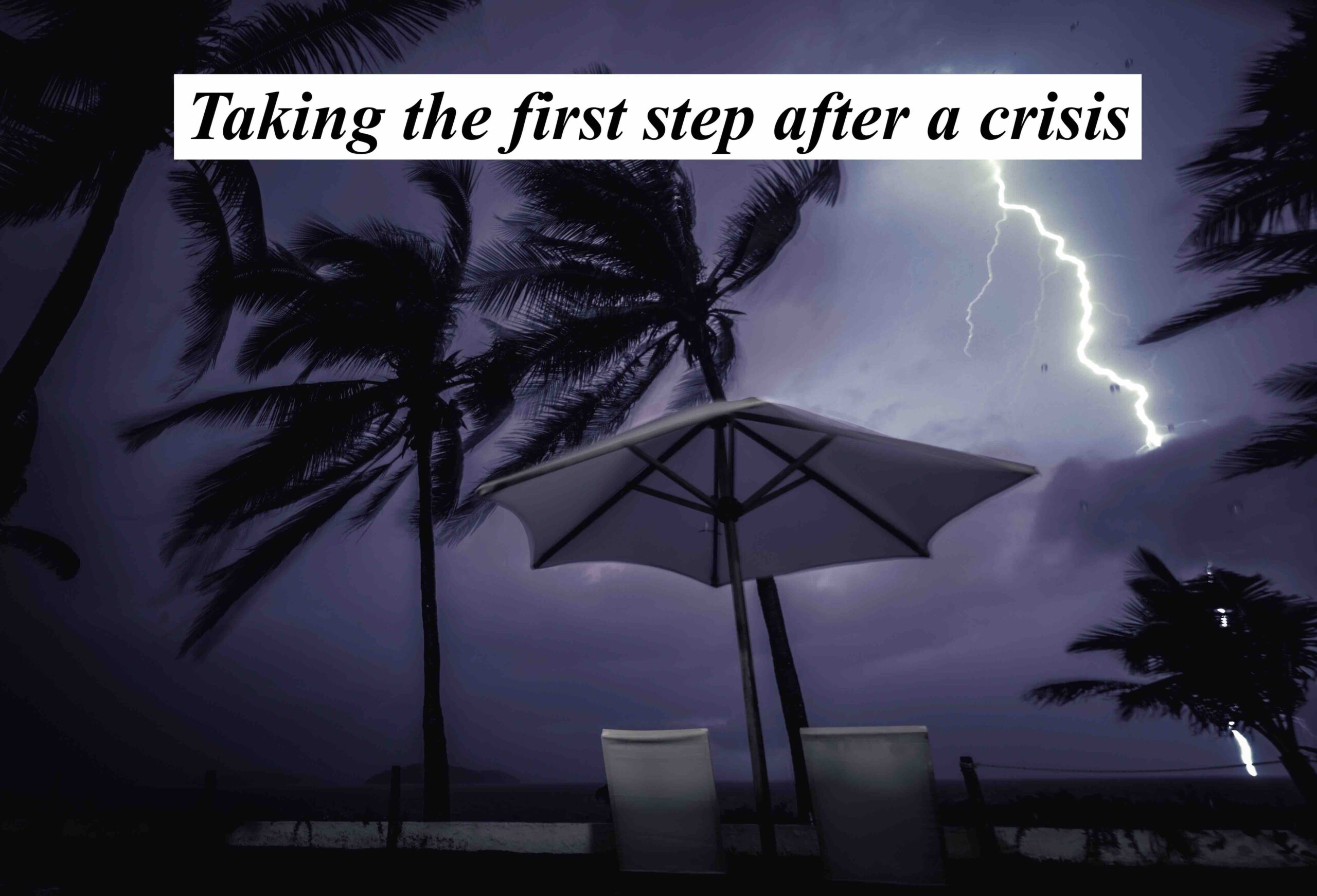My brother wrote to me from his home in Florida the night before Hurricane Ian made landfall. He and thousands of others were directly in the path of what would be the worst hurricane in Florida’s history. It was estimated that the eye of the storm would pass by 18 miles north of his home. Earlier in the day I asked him about how he was preparing for effects of a Category 4 hurricane. What was the first step?
My brother sent a barrage of pictures. He had shuttered all the windows and purchased 14 five gallon containers of gasoline for the generator, two window air conditioners, two extra propane tanks, stocked his refrigerator with the essentials (steaks and Bud Light), 4 cases of Diet Coke, toilet paper stacked to the ceiling, you get the idea. He was as ready as he could be.
The next morning the hurricane hit the Fort Meyers region and I lost all communication with my brother and his family for a few days. When we did reconnect, he sent pictures and videos of the devastation up and down the coast. Fortunately for him, the damage was minimal. But that wasn’t the case for many people. Many Floridians lost homes, businesses and at least 119 deaths were recorded.
It’s also predicted that Hurricane Ian will cause a loss of $7 billion in tourism. One restaurant owner said that the tourists will wait until everything is up and running again, but for our regular customers, there are many unknowns.
When it comes to dealing with change, it’s usually the unknowns that hold us back. Whether you’re reeling from the aftermath of Hurricanes Ian, Fiona or another disruption in your life, it’s the unknowns that paralyze us the most. It could be a unexpected change at work: a merger or office reorganization; or it might be bad news that you received from the doctor or the ending of a relationship. Regardless of the disruption, many people are shocked by the crisis and don’t know how to go forward. My advice, take the first step after a crisis.
As a change and transition specialist, I see this a lot. And I tell people that, as painful as it is, there is a way forward. The pathway begins by recognizing and understanding how we are reacting to this disruptive change. Think back to a change event that was difficult for you. You might have felt anxious, confused, lost, helplessness, alone or fearful of the future. You could even feel all of these emotions in the early days of a crisis.
In order to navigate successfully through change, it’s essential to recognize how we’re feeling. Equally important, there is something to be done that will turn paralysis into mobilization. The first step to move through transitions is to be change-ready; we must be willing and prepared to change by practicing these two essential behaviours: acceptance and letting go.
The first step is to accept the disruption. When we accept it, we are acknowledging that it has happened even though our lives will be dramatically different. But remember, acceptance does not mean agreement; it does not mean that you like the change. Acceptance simply recognizes that it happened.
The second step is letting go. This action consciously chooses to let go of the past and the way things used to be. The act of letting go refuses to hold on to the past, painful though it may be. Letting go also doesn’t try to return to the past or bargain for more time.
These two actions are difficult steps to take. And yet, they are essential if we are going to move forward. When we accept a new change and let go of the past, it mobilizes us; it’s the beginning of a process that I call Empowered Change.
For more information about other stages of transition and the behaviours that accompany each stage, feel free to contact me. Keep pivoting!
Check out Mark DeVolder’s book Perpetual Pivot: How the Best Leaders Adapt to Exponential Change. He provides valuable insights, answers and solutions about change, transition, leadership, engagement and teamwork. https://www.amazon.com/dp/1777386438




